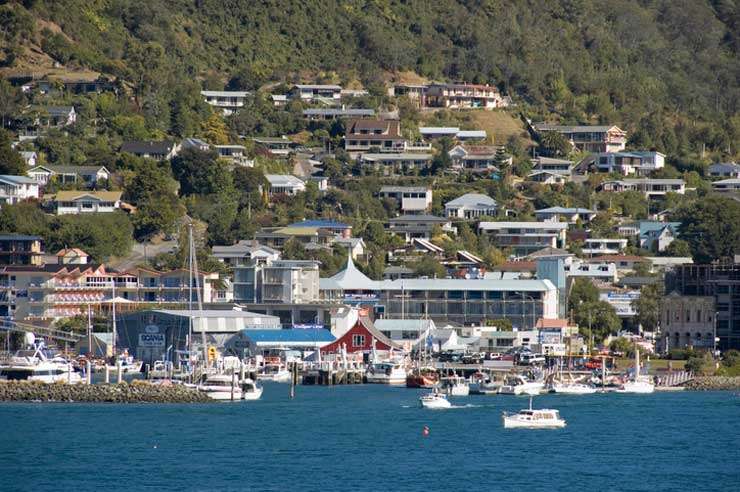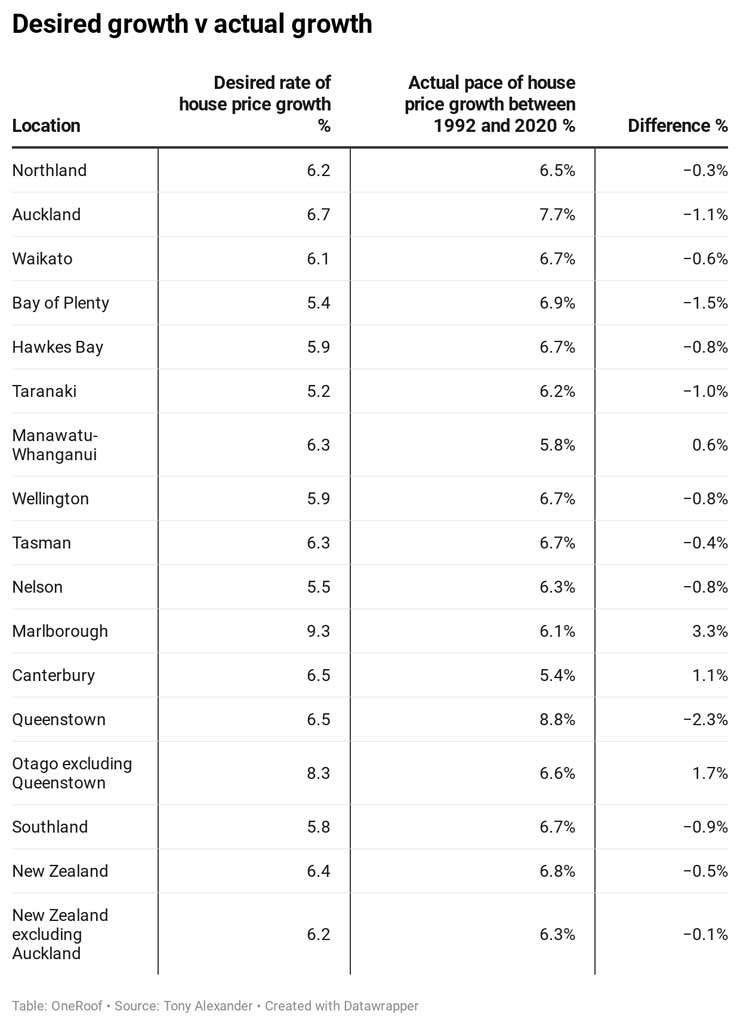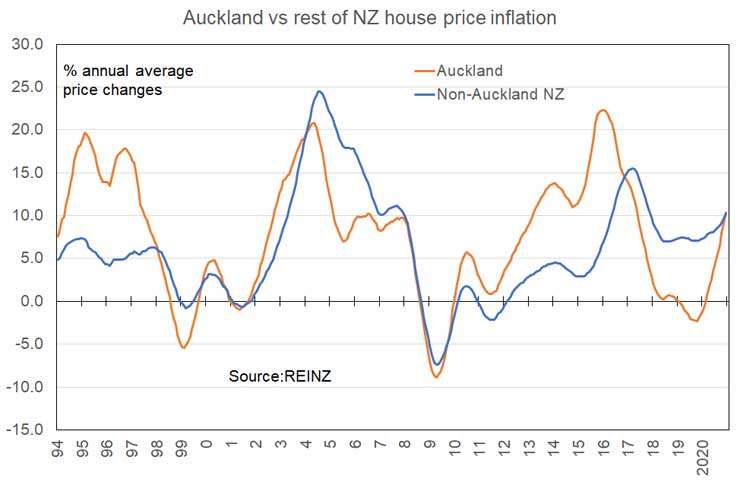Back in 1961, Auckland accounted for 21% of New Zealand’s population. Now it is sitting at about 34%, with not much population growth out-performance in recent years as people have shifted to the regions for more affordable housing.
The strong rate of population growth in Auckland hasn’t always been matched with strong growth in the number of houses being built. As a result we have seen some periods when property prices in our biggest city have risen at a far faster rate than in the rest of the country.
READ MORE: Find out if your suburb is rising or falling
For instance, in 1995 and 1996 Auckland house prices rose on average more than those elsewhere, by 10% then 11%. Then some catch-up occurred, with Auckland lagging by 5% in 1998 before roughly level-pegging or coming in a little bit higher or lower in the years to 2011.
Start your property search
But in 2012 Auckland house prices rose 6% more than in the rest of New Zealand; in 2013 and in 2014 the rise was 9%, and in 2015 it was 16%. Since 2017, Auckland prices have risen 10% while a 40% gain has been recorded elsewhere.
The pattern is one of Auckland often leading, with the rest of New Zealand catching up – but not as much. The result is that since 1992, Auckland’s average house price has risen 640%, but the average house price rise elsewhere has been 420%.
In the early 1990s, when Auckland was shooting ahead, someone coined the term “JAFA”, which stood for “Just Another %$*^ Aucklander”. The term was probably motivated by some envy about Auckland’s housing market and the resulting focus on developments there. And the view developed that housing is all Aucklanders think about and all they want is that their property prices keep rising and rising to a greater extent than everywhere else.

Marlborough would like house prices to rise by 9.3% a year. Photo / Supplied
But is it true that Aucklanders are the most eager people when it comes to wanting house prices to rise? No.
Since May last year I have invited each month the now 18,000 subscribers to my weekly Tony’s View publication to indicate whether they plan spending more or less on various things in the near future and what those things are. I sometimes add an extra question and did so two weeks ago.
Specifically, I asked people what pace of growth they would like house price inflation to slow down to. I won’t go through all the details but what I am able to do is calculate the average pace of house price growth people want for each region. Top of the list are people in Marlborough. They would like house prices to rise by 9.3% a year. People in Otago, but not Queenstown Lakes, would like 8.3% per annum increases.

Auckland comes next at 6.7%, Canterbury 6.5%, Queenstown Lakes 6.5%, then the country overall 6.4%. Excluding Auckland, a 6.2% rise is desired. Taranaki lies at the bottom with people there favouring just a 5.2% annual house price gain.
The most interesting thing about the results, beyond Auckland not sitting at the top of the list, is this: Aucklanders favour a pace of increase slower than the 7.7% they have averaged since 1992. The rest of New Zealand wants a pace slightly faster than their 6.2% average since 1992.

In which region is the greatest change from the 1992-2020 situation desired? Marlborough with a 3.3% acceleration wanted, then Otago (excluding Queenstown Lakes) with a 1.7% a year acceleration desired, followed by Canterbury people wanting a 1.1% a year speed-up.
For the analysts out there, note that there is no observable tendency for regions with the slowest house price gains historically to want the biggest acceleration from 1992-2020’s numbers. A desire to “catch-up” is not apparent.
- Tony Alexander is an economics commentator and former chief economist for BNZ. Additional commentary from him can be found at www.tonyalexander.nz

















































































